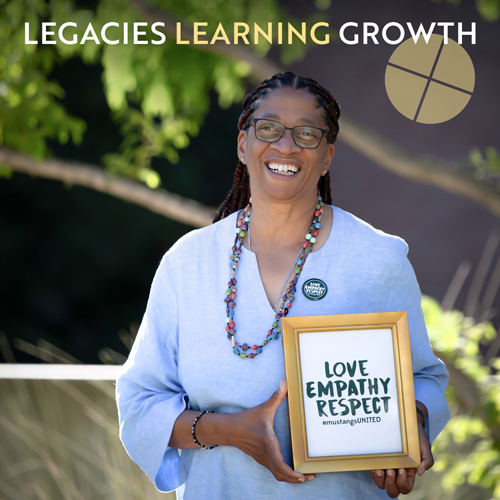Biology Student Awarded $50,000 Fellowship
 Samantha Bock, a senior biology major, spent the summer as an intern with the Environmental Protection Agency.
Samantha Bock, a senior biology major, spent the summer as an intern with the Environmental Protection Agency.
Biology senior Samantha Bock spent the summer as an intern with the Environmental Protection Agency (EPA) thanks to a Greater Research Opportunity Fellowship. The $50,000 fellowship—one of only 34 that the EPA awarded nationwide—will also support Bock’s final year of study at Cal Poly.
“GRO fellows are selected following a rigorous competitive process,” said Jayne Michaud, fellowship team lead in EPA’s National Center for Environmental Research. “This fellowship not only helps to fund their education but it also provides an opportunity for a paid three-month internship at an EPA research laboratory or other EPA facility to enhance their educational experience with hands on research and gain valuable professional training.”

Bock received one of only 34 $50,000 fellowships from the EPA
Photos // Contributed.
Bock studied the effects of pollutants on the mummichog, a small fish, at the Atlantic Ecology Division of the EPA in Narragansett, R.I. Working with EPA scientists, Bock conducted field and lab experiments. The study focused on how human activities affect the fish at the molecular, individual, community and ecosystem levels.
“This was a tremendous opportunity for Samantha. She’s in the field with professional scientists. I can’t think of any better way to Learn by Doing,” said Chris Kitts, chair of Cal Poly’s Biological Sciences Department
Bock’s student-faculty research with professor Sean Lema paved the way for her successful fellowship application. “My research experiences at Cal Poly helped me tremendously,” Bock said. “They allowed me to focus my research interests and develop the skills to pose my own questions. They also provided me with valuable training in various experimental methods.”
The fellowship gave her experience with a range of experimental methods and introduced her to an integrative approach that she hopes to continue in the future. Bock plans to pursue a doctorate in ecology or marine science after graduation.
“This grant allowed me to participate in research addressing questions similar to those I hope to address in my own research in the future,” Bock said. “It’s a great step in furthering my scientific career.”




